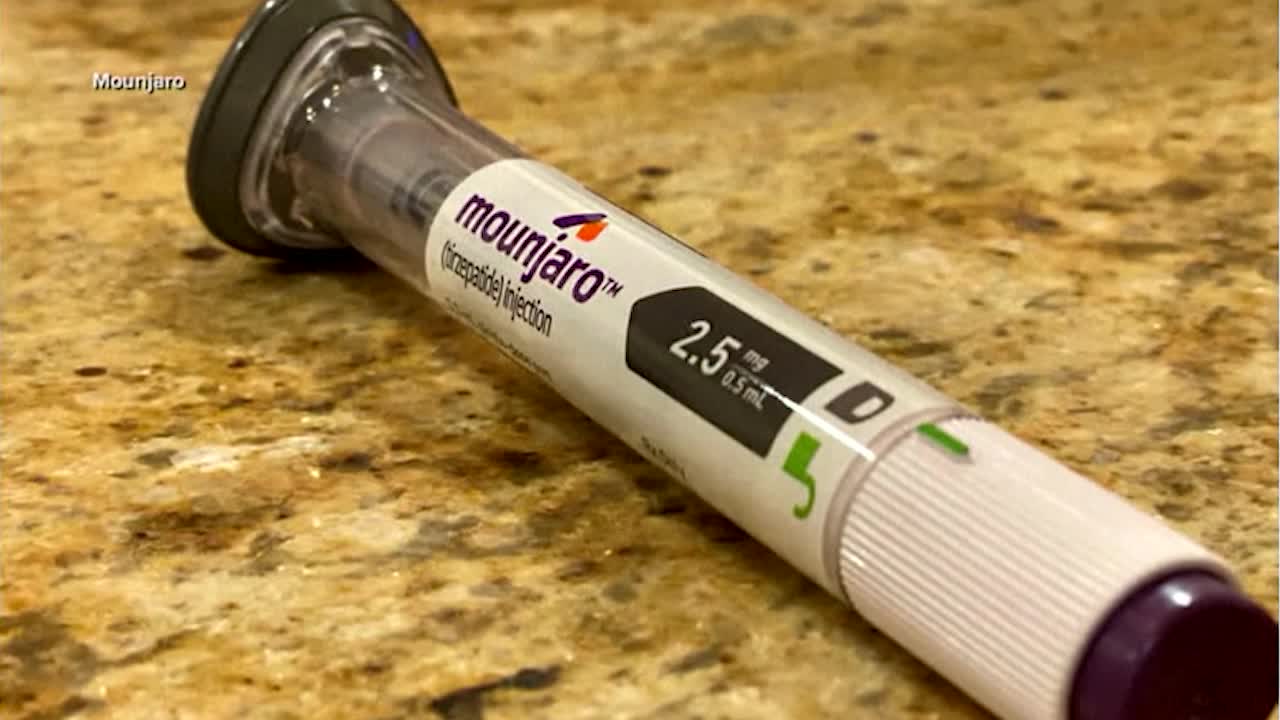Pricey weight-loss drugs forcing employers to make ‘moral choices’ about insurance coverage
Pricey weight-loss drugs forcing employers to make moral choices about insurance coverage
Ozempic, Wegovy and Mounjaro. You’ve probably seen TV commercials or heard celebrities talking about taking these drugs to lose weight. The FDA just approved a new drug called Zepbound.
These drugs help people with other health problems too, but they are controversial because they cost more than $1,000 per month.
When it comes to insurance coverage, benefits experts say it’s forcing employers to make a “moral decision.”
Kate Moher is President of Employee Health and Benefits at Marsh McLennan Agency, a subsidiary of Marsh, the largest insurance brokerage in the world.
“So we are helping HR departments figure out what benefits to offer their employees,” she said.
Moher says the claims data she tracks shows increased spending in the last 18 months on the injectable drugs Wegovy, Ozempic and Mounjaro.
“So what’s happened is there’s been a lot of overprescribing to individuals who really aren’t in those disease codes or states that we’ve described, diabetes, heart, obesity,” said Moher. “So if you have all of these weight loss drugs going to individuals who don’t really need it, off, as you say, off label, then those patients that need it, haven’t been able to get it.”
“There are a lot of individuals who are pre-diabetes, who are overweight, and their doctors are creating justification for them to take it,” said 5 EYEWITNESS NEWS Medical Expert Dr. Archelle Georgiou.
But is that wrong?
“That’s a really good question,” said Georgiou. “Because physicians have the authority, the legal authority to prescribe any FDA-approved drug for any indication.”
Dr. Mike Miedema with the Minneapolis Heart Institute says new research by Novo Nordisk, the manufacturer of Wegovy, released last weekend at an American Heart Association conference, shows why cardiologists are turning to these weight loss drugs more often.
In the five-year study of more than 17,000 people who were overweight or obese and had heart disease, Wegovy sharply cut heart attacks, strokes and cardiac deaths and people also lost weight.
“The point of these medications is to improve cardiovascular health,” said Miedema. “And so with weight loss, we see reductions in blood pressure. We see reductions in blood sugars, we see an increasing good cholesterol and we see a decrease in triglycerides. All those things improve cardiovascular risk, and that’s how you improve cardiovascular health.”
But according to Georgiou, “Prescribing a medication and receiving it, is different than whether or not your insurer has an obligation to pay for it.”
She adds people being overweight or obese is the biggest public health problem that the United States has.
“This is a really big, big issue because over 65% of the American population is overweight or obese,” she said. “And a big chunk of them could benefit from this medication that costs $1,200 a month. And at the same time, if everyone that needs it, got it, we would bankrupt the healthcare system. So there is a dilemma here. What do we do? It is what we need but it’s too expensive.”
So what position does this put employers in?
“Employers are really struggling to decide,” said Georgiou. “Do they cover these drugs for weight loss?”
Moher calls it a moral choice.
“I think it’s as an employer if you care about your employees, you’re going to do the best you can to cover what they need. But there is the affordability. It’s this fine balance,” she said.
“I suspect that all or most employers cover these medications for diabetes,” added Georgiou. “That’s not the dilemma. The dilemma is do they cover these medications for weight loss?”
So what will it take to bring the cost of these popular drugs down?
“My hope is that this is going to be a huge dilemma and a huge stressor in the industry, with patients with doctors, until the medication is transitioned to being an oral medication pill form, which is cheaper to manufacture,” said Georgiou.
“I just read an article yesterday in the New York Times there’s 70 weight loss drugs in the pipeline,” said Moher. “So when those start to have go through trials and start to be approved by the FDA for weight loss, you’re going to start to see Wegovy go down in price. And again, those that are similar to the diabetic medications, you’re going to see Ozempic and Mounjaro come down. So it’s competition.”
And now with Zepbound, there’s new competition. Manufacturer Eli Lilly says it will be on pharmacy shelves after Thanksgiving.
Both Eli Lilly, which also makes Mounjaro, and Novo Nordisk, which makes Ozempic and Wegovy, offer discount cards to help people pay for their medicine, but the amount depends on whether your company offers insurance coverage. Check with your pharmacist for more information.
Another important note is that Miedema says these drugs are not a magic potion. They work best when paired with extensive lifestyle changes, like diet and exercise.
The Minneapolis Heart Institute Foundation wants you to know about a unique fundraising concert called Heart 360 at The Armory in Minneapolis on Nov. 18, 2023.
The concert features Dierks Bentley and special guest Tyler Braden and benefits lifesaving research and education for patients around the world.
Click here for ticket information.
No Byline Policy
Editorial Guidelines
Corrections Policy
Source
